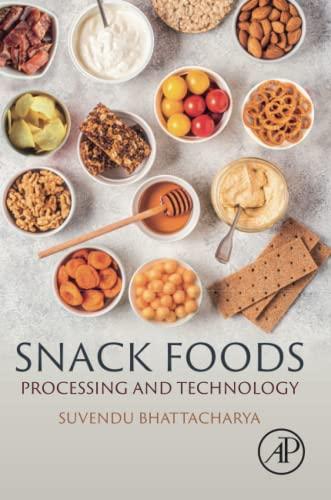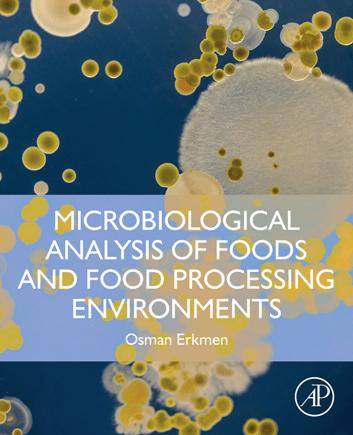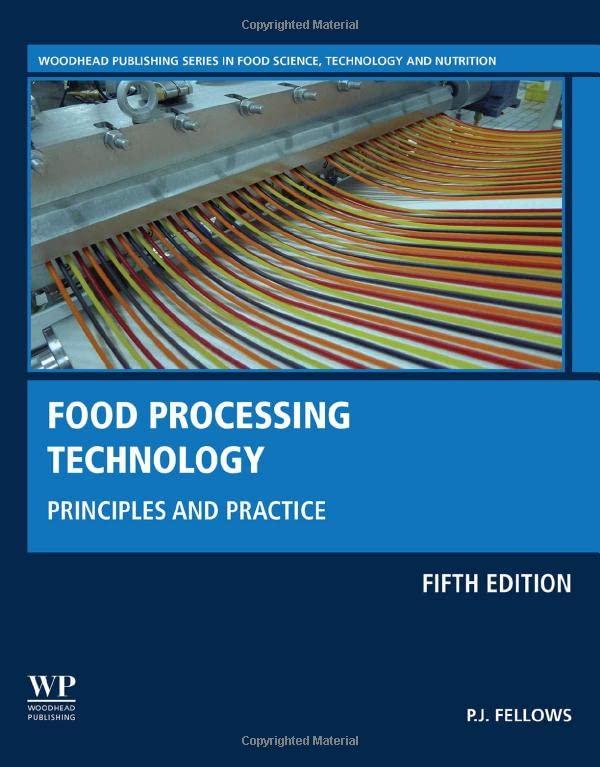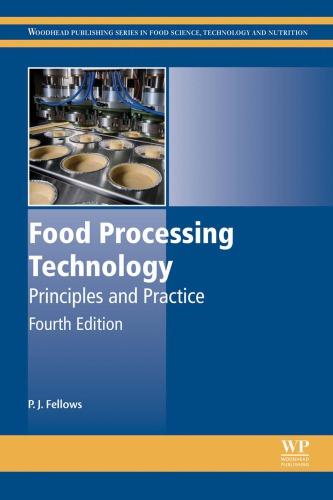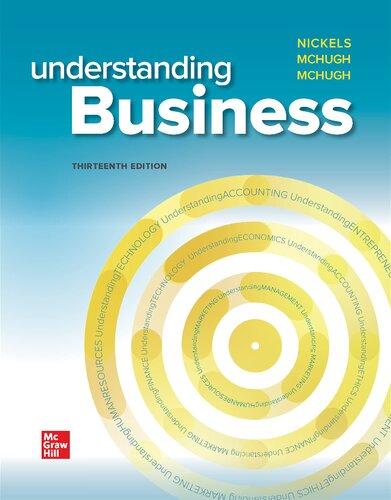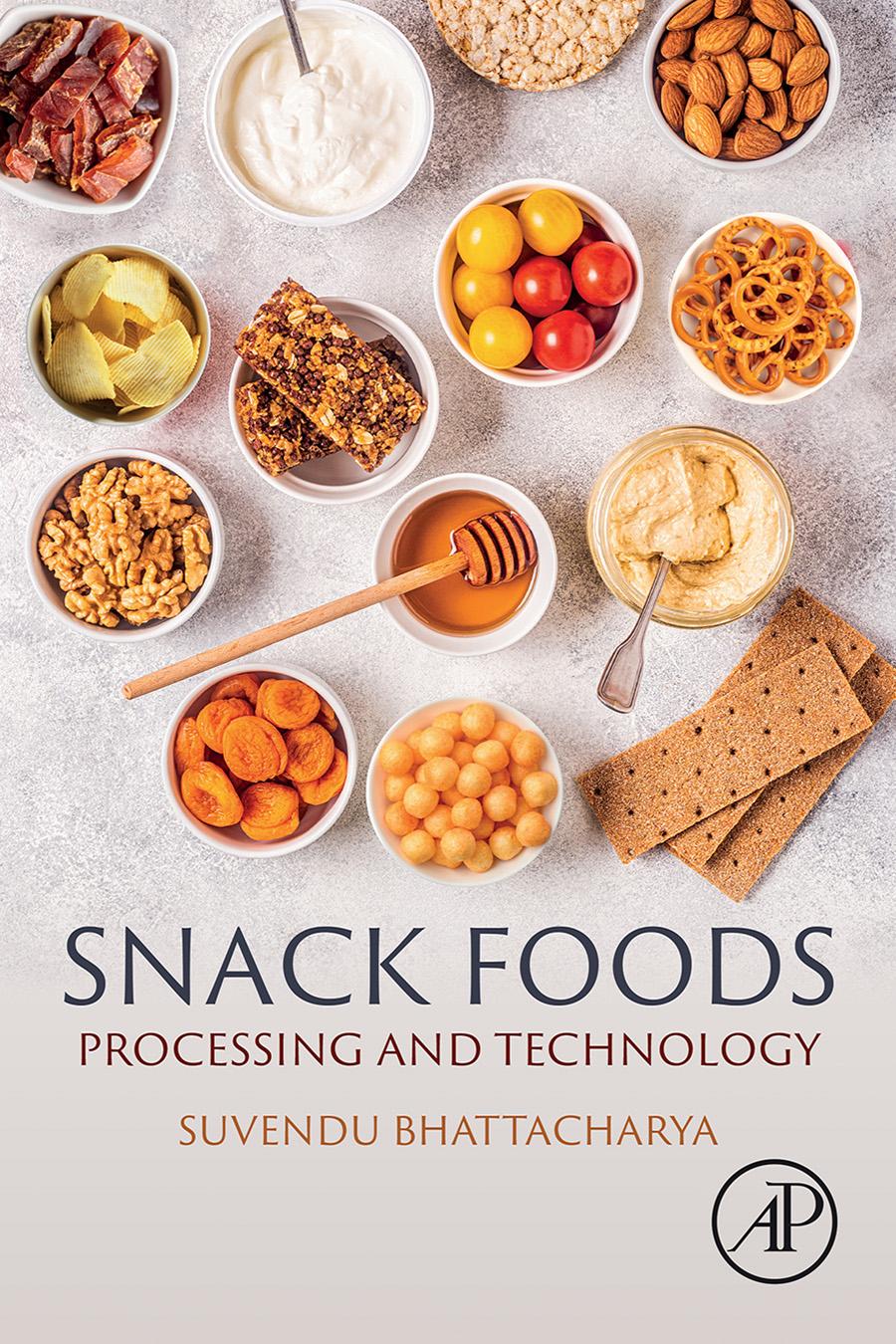SnackFoods ProcessingandTechnology
SUVENDUBHATTACHARYA
FormerChiefScientist,CSIR-CentralFoodTechnological ResearchInstitute,Mysore,India
AcademicPressisanimprintofElsevier 125LondonWall,LondonEC2Y5AS,UnitedKingdom 525BStreet,Suite1650,SanDiego,CA92101,UnitedStates 50HampshireStreet,5thFloor,Cambridge,MA02139,UnitedStates TheBoulevard,LangfordLane,Kidlington,OxfordOX51GB,UnitedKingdom
Copyright©2023ElsevierInc.Allrightsreserved.
Nopartofthispublicationmaybereproducedortransmittedinanyformorbyanymeans, electronicormechanical,includingphotocopying,recording,oranyinformationstorageand retrievalsystem,withoutpermissioninwritingfromthepublisher.Detailsonhowtoseek permission,furtherinformationaboutthePublisher’spermissionspoliciesandour arrangementswithorganizationssuchastheCopyrightClearanceCenterandtheCopyright LicensingAgency,canbefoundatourwebsite: www.elsevier.com/permissions.
Thisbookandtheindividualcontributionscontainedinitareprotectedundercopyrightby thePublisher(otherthanasmaybenotedherein).
Notices
Knowledgeandbestpracticeinthisfieldareconstantlychanging.Asnewresearchand experiencebroadenourunderstanding,changesinresearchmethods,professionalpractices, ormedicaltreatmentmaybecomenecessary.
Practitionersandresearchersmustalwaysrelyontheirownexperienceandknowledgein evaluatingandusinganyinformation,methods,compounds,orexperimentsdescribed herein.Inusingsuchinformationormethodstheyshouldbemindfuloftheirownsafety andthesafetyofothers,includingpartiesforwhomtheyhaveaprofessionalresponsibility.
Tothefullestextentofthelaw,neitherthePublishernortheauthors,contributors,or editors,assumeanyliabilityforanyinjuryand/ordamagetopersonsorpropertyasamatter ofproductsliability,negligenceorotherwise,orfromanyuseoroperationofanymethods, products,instructions,orideascontainedinthematerialherein.
ISBN:978-0-12-819759-2
ForInformationonallAcademicPresspublications visitourwebsiteat https://www.elsevier.com/books-and-journals
Publisher: NikkiLevy
AcquisitionsEditor: NinaBandeira
EditorialProjectManager: CatherineCostello
ProductionProjectManager: SruthiSatheesh
CoverDesigner: MatthewLimbert
TypesetbyMPSLimited,Chennai,India
DedicatedtomywifeSila,andsonsNilabhaandRudram
Thispageintentionallyleftblank
1.Introduction1
1.1 Definition3
1.2 Frequencyofsnackconsumption4
1.3 Classificationofsnackfoods5
1.4 Consumptionofsnackfoods7
1.5 Surveysonsnackconsumption7 References14
2.Grainsandgrainfractions17
2.1 Introduction17
2.2 Ingredientsforsnackfoods17
2.2.1 Cereals28
2.2.2 Amaranth60
2.2.3 Millets60
2.2.4 Pulses62
2.3 Conclusions69 References69
3.Rootandtubercrops75
3.1 Introduction75
3.2 Rawmaterialsandproducts76
3.2.1 Potato76
3.2.2 Cassava88
3.2.3 Carrot92
3.2.4 Sweetpotato92
3.2.5 Yam92
3.3 Conclusions92 References93
4.Fruitsandvegetables95
4.1 Introduction95
4.1.1 Fruitbars95
4.1.2 Extrudedfruit/vegetable-basedsnacks99
4.1.3 Fruitpulpandjuices100
4.1.4 Candiedfruit100
4.1.5 Friedvegetables101
4.2 Mango101
4.2.1 Mangopowder103
4.2.2 Mangoleatherandflake103
4.3 Ashgourd104
4.4 Papaya105
4.5 Apple106
4.6 Onion107
4.6.1 Onionpowderandrings107
4.6.2 Onionpaste108
4.7 Garlic109
4.8 Jalapeño109
4.9 Capsicumandpaprika110
4.10 Chili110
4.11 Bananaandplantain111
4.11.1 Bananapowderandbar111
4.12 Figs112 4.13 Leafyvegetables113
4.14 Conclusions114 References114
5.Meat-,fish-,andpoultry-basedsnacks117
5.1 Introduction117
5.2 Meat117
5.2.1 Meatminceandballs123
5.2.2 Comminutedmeat123
5.2.3 Restructuredmeat124
5.2.4 Texturedprotein125
5.2.5 Culturedmeat126
5.2.6 Meatreplacers127
5.2.7 Imitationmeat129
5.2.8 Mechanicallydebonedmeat131
5.2.9 Chop,steak,androast132
5.2.10 Kebab132
5.2.11 Bar,roll,andcutlet133
5.2.12 Salami134
5.2.13 Barbeque135
5.2.14 Sausage136
5.2.15 Patty137
5.2.16 Hamburger137
5.2.17 Hotdogandbologna138
5.2.18 Meatsamosa139
5.2.19 Meatchips139
5.2.20 Jerky139
5.2.21 Steamedmeatbun140
5.3 Fishandshellfish141
5.3.1 Surimi141
5.3.2 Extrudedsnacks142
5.3.3 Friedfishandseafood142
5.4 Egg143
5.5 Processesappliedformeat,fish,andpoultry144
5.5.1 Meattenderization144
5.5.2 Curing145
5.5.3 Smoking145
5.5.4 Grilling146
5.6 Conclusions147 References147
6.Dairy-basedsnacks151
6.1 Introduction151
6.2 Rawmaterialsused151
6.2.1 Milk151
6.2.2 Processedmilk-basedingredients151
6.3 Dairy-basedsnacks162
6.3.1 Extrudedsnacks164
6.3.2 Jamunandrosogolla165
6.3.3 Filledsnacks167
6.3.4 Milkchocolate168
6.3.5 Custardcubes168
6.3.6 Curdsnacks168
6.3.7 Kashk169
6.4 Conclusions169 References170
7.Ediblenuts173
7.1 Introduction173
7.2 Rawmaterialsandproducts174
Contents
7.2.1 Almond174
7.2.2 Cashewnut176
7.2.3 Chestnut178
7.2.4 Coconut179
7.2.5 Hazelnut180
7.2.6 Macadamia181
7.2.7 Peanut(groundnut)181
7.2.8 Pecan184
7.2.9 Pistachio184
7.2.10 Walnut185
7.2.11 Othernuts185
7.3 Storageandprocessingofnuts187
7.4 Conclusions190 References191
8.Differentsaltsinsnacks193
8.1 Introduction193
8.2 Differentsalts194
8.2.1 Tablesalt195
8.2.2 Rocksalt196
8.2.3 Koshersalt196
8.2.4 Curingsalt197
8.2.5 Papadkhar197
8.2.6 Blacksalt198
8.2.7 Nonpopularsalts199
8.3 Saltcontentinsnacks199
8.4 Methodsofapplicationofsalt201
8.5 Strategiesforsaltreduction205
8.5.1 Gradualreductionofsalt207
8.5.2 ReplacingNaClwithothersalts207
8.5.3 Formulationchanges208
8.5.4 Useofsaltenhancers208
8.5.5 Naturalflavormaterials208
8.6 Conclusions209 References209
9.Sugars,sweeteners,chocolates,andsweetsnacks211
9.1 Introduction211
9.2 Rawmaterials212
9.2.1 Monosaccharides213
9.2.2 Disaccharides214
9.2.3 Jaggery216
9.2.4 Honey216
9.2.5 Maplesyrup218
9.2.6 Molasses218
9.2.7 Date219
9.2.8 Otherhydrolyzedstarchproducts219
9.3 Bulksweeteners222
9.3.1 Reduced-caloriesweeteners222
9.4 Artificialsweeteners227
9.4.1 Aspartame227
9.4.2 Sucralose228
9.4.3 Acesulfamepotassium229
9.4.4 Alitame229
9.4.5 Thaumatin230
9.4.6 Neotame230
9.4.7 Stevia231
9.4.8 Luohanguo231
9.4.9 Saccharin231
9.4.10 Cyclamate232
9.5 Sweetsnacks233
9.5.1 Cottoncandy233
9.5.2 Rockcandy234
9.5.3 Lozenge234
9.5.4 Hardcandy235
9.5.5 Nakuldana,batasha,andkadma236
9.5.6 Licorice237
9.5.7 Toffee237
9.5.8 Gumdrops238
9.5.9 Gummies239
9.5.10 Marshmallow239
9.5.11 Marzipan240
9.5.12 Nougat241
9.5.13 Halwa241
9.5.14 Sugar-coatedseeds242
9.5.15 Fudge242
9.6 Chocolates242
9.6.1 Chocolate-basedrawmaterials244
9.6.2 Chocolatesnacks245
9.7 Aeratedconfectionery246
9.8 Reductionofsugarintake246
9.9 Conclusions247 References248 Furtherreading250
10.Fatsandoils251
10.1 Introduction251
10.2 Rawmaterials252
10.2.1 Extractionoffatsandoils253
10.3 Selectionofoil262
10.4 Stabilityandreuseofoil265
10.5 Changesinoilduetoheating266
10.5.1 Fryingprocess266
10.5.2 Oil/fatinbakedsnacks269
10.5.3 Toxiccompoundsduetoheating270
10.5.4 Trans-fattyacids272
10.6 Fat-andoil-basedproducts272
10.6.1 Margarine273
10.6.2 Mayonnaise273
10.6.3 Saladdressing274
10.6.4 Saladoil275
10.6.5 Mustardpaste276
10.6.6 Specialtyfatsandoils276
10.7 Conclusions278 References279
11.Otheradditivesinsnacks283
11.1 Introduction283
11.2 Differentadditives287
11.2.1 Antibrowningagents288
11.2.2 Anticakingagents289
11.2.3 Antioxidants289
11.2.4 Binders290
11.2.5 Chelatingagents292
11.2.6 Foodcolor292
11.2.7 Flourtreatmentandimprovingagents296
11.2.8 Foodacidsandacidityregulators297
11.2.9 Foodflavor297
11.2.10 Flavorenhancer300
11.2.11 Glazingagents301
11.2.12 Hydrocolloids302
11.2.13 Leaveningagent305
11.2.14 Nucleatingagent306
11.2.15 Nutritionaladditives306
11.2.16 Preservative307
11.2.17 Spices,condiments,andherbs308
11.2.18 Texturizingagents310
11.2.19 Otheradditives314
11.3 Labelingoffoodadditives314 11.4 Conclusions316 References316
12.Processesandmachinery321
12.1 Introduction321
12.2 Commonprocessesemployed322 12.2.1 Baking322 12.2.2 Blanching332
12.2.3 Chilling,refrigeration,andfreezing333
12.2.4 Coating,enrobing,andflavorapplication334
12.2.5 Conching335
12.2.6 Conveying336
12.2.7 Deoiling337
12.2.8 Dewatering337
12.2.9 Drying338
12.2.10 Encapsulation339
12.2.11 Emulsification340
12.2.12 Extrusionandextrusion-cooking340
12.2.13 Frying341
12.2.14 Grilling342
12.2.15 Grinding343
12.2.16 Microwaving344
12.2.17 Mixing344
12.2.18 Packaging346
12.2.19 Roastingandtoasting347
12.2.20 Shaping,sheeting,andflattening349
12.2.21 Shelling,dehulling,peeling,anddestoning351
12.2.22 Slicing,dicing,cutting,chopping,andmincing352
12.2.23 Sorting,sieving,andgrading354
12.2.24 Steaming355
12.2.25 Combinationofprocesses355
12.2.26 Otherprocessingmethods356
12.3 Automationandrobotics358
12.3.1 Automation358
12.3.2 Robotics360
12.3.3 Three-dimensionalprinting362
12.4 Processingofselectedsnacks363
12.4.1 Frenchfriesandpotatochips364
12.4.2 Bananachips367
12.4.3 Friedsev(bhujia)367
12.4.4 Boondiandlaadu368
12.4.5 Pretzel369
12.4.6 Otherfriedsnacks372
12.5 Conclusions379 References379 Furtherreading382
13.Qualitycharacteristics383
13.1 Introduction383
13.2 Physicalproperties385
13.2.1 Density,size,andshape385
13.2.2 Moisturesorption386
13.2.3 Wateractivity386
13.2.4 Appearanceandcolor387
13.2.5 Rheology394
13.3 Pastingcharacteristics414
13.4 Thermalproperties416
13.5 Sensoryassessment418
13.5.1 Measurements419
13.5.2 Analysisofsensoryassessmentresults424
13.6 Chemicalanalysisofsnackfoods429
13.6.1 Proximatecomposition430
13.6.2 Minerals,vitaminsandothers431
13.7 Flavorandtaste433
13.8 Microbialstatus434
13.9 Microstructure435
13.10 Machinevision-basedmeasurement443
13.11 Nutritionalcharacterization444
13.12 Shelf-lifeoffood445
14.Healthandspecialsnacks461
14.1 Introduction461
14.2 Characteristicsofhealthsnackfoods462
14.3 Approachesformakinghealthysnacks463
14.4 Processesforhealthyfoods464
14.4.1 Shallowfrying464
14.4.2 Steamfryingprocess465
14.4.3 Extrusioncooking465
14.4.4 Roastingandtoastingprocesses468
14.4.5 Vacuumfrying469
14.4.6 Useofalternativetechnologies471
14.5 Health-benefitingingredients475
14.5.1 Fiber475
14.5.2 Amaranth476
14.5.3 Moringa477
14.5.4 Spirulina478
14.5.5 Chickpea479
14.5.6 Premature-processedandmaturedgreenlegumes479
14.5.7 Spicesandherbs480
14.5.8 Probioticsandprebiotics481
14.6 Reductioninunhealthyitems482
14.6.1 Reductionofsugarandsalt482
14.6.2 Oil/fatreduction486
14.6.3 Reductionofacrylamide487
14.7 Knownhealthysnackfoods488
14.7.1 Proteinbars488
14.7.2 Cerealbars490
14.7.3 Gunpuffingandcompressedcake491
14.7.4 Steamedbun491
14.7.5 Churpi493
14.7.6 Khakra493
14.7.7 Roastedpulse/legume494
14.7.8 Naan495
14.7.9 Ricecake495
14.7.10 Puffedsoybean496
14.7.11 Bakedcarrotchips497
14.7.12 Microwaveprocessedpotatochips498
14.7.13 Fruitleather499
14.7.14 Fruit-andvegetable-basedingredients500
14.7.15 Candiedfruitwithoutaddedsugar501
14.7.16 Mockmeat501
14.7.17 Tissueculturemeat503
14.7.18 Okara503
14.7.19 Bori504
14.7.20 Functionalfoodsforappetitecontrol504
14.7.21 Snackswithachangeinformulation505
14.8 Snacksforspecialpurposes507
14.8.1 Snacksforemergencypurposes507
14.8.2 Snacksfornutritionalinterventionprograms508
14.8.3 Gluten-freesnacks508
14.8.4 Dairy-freesnacks511
14.8.5 LowGIsnacks511
14.9 Artisticsnacks512
14.9.1 Churros513
14.9.2 Gohonabori513
14.9.3 Amriti516
14.9.4 Jilebiwithmultiplestrands516
14.9.5 Sarawaklayercake517
14.9.6 Otheruniqueshapes517
14.10 Conclusions518 References519
15.Troubleshooting525
15.1 Introduction525
15.2 Problemsandsuggestedsolutions525 15.3 Conclusions541 References541 Index 543
Preface
Snackfoods,eateninbetweenmajormeals,areanintegralcomponentof thelifestyleandculture.Thoughsnackfoodsarehabituallymeantforenjoyment,theyofferseveralnutrients apartfromprovidingfoodenergy. Consumersexpectsomethinginterestinginsnackscomparedtofamiliarbase mealsofferingnoexcitement.Thefoodhabitshavealsochangedformany peopleduetothe “cash-richless-time” condition.
Thebookcontains15chaptersthatarebrieflymentionedinthesubsequentsections.Chapter1(Introduction)citesthedefinitionofsnacksand theimportantsurveysconductedontheconsumptionofsnackfoodsin differentcountries.Severalrawmaterialsandadditivesareusedtoprepare thesnacks.ThesearediscussedinChapters2 11.Chapter12dealswith processesandmachinery.Thequalitycharacteristicsofrawmaterialsand snackfoodsareshowninChapter13.Chapter14discussesthehealthand specialsnackswhiletroubleshootingismentionedinChapter15.
Grainsandgrainfractions(Chapter2)arethemostcommonlyusedbase materialthatcomprisescereals,millets,pulses,andoilseeds.Therootand tubercrops(Chapter3)arethestorehouseofstarchwhichisthepopular ingredientforthemanufactureofnumeroussnackfoods.Theedibleportions offruitsandvegetablesareusedtodevelopingredientssuchaspulp,paste, juice,powder,anddriedslicesfor thepreparationofsnackproducts (Chapter4).Thepreparedsnacksarecandiedfruitbarsandcubes,friedvegetables,batteredproducts,andextrudedsnacks.Chapter5isconcerningmeat, fish,andpoultry-basedsnacksfromvariousanimalsources.Theintermediate moisture-containingproductssuchassausages,jerky,andsimilarproductsare popularamongconsumers.Milk-basedsnacks,mostlysweet,arecommerciallyimportantproducts(Chapter6). Suchsnackproductsareoftenprepared incombinationwithprocessedcerealsandnuts,andpiecesofdriedfruits. Chapter7dealswithediblenutsandthesnacksmadefromthem.Nutsare consideredtobehealth-benefitingfoodsandpossessworldwidepopularity. Thecommonnutsarehazelnut,chestnut,almond,pecan,coconut,pistachio, walnut,peanutorgroundnut,andcashewnut.Saltperformsseveralfunctions insnackfoodssuchasflavor-enhancing,preservation,andofferingsaltiness. Differenttypesofsaltareobtainedfromseaorlakewaters,ormines (Chapter8).Ingeneral,snackfoodsarehighinsaltcontent,whichishigher thanthephysiologicalneeds.Thelevelofsaltmaybereducedbyusing
appropriatemethods.Chapter9showstheuseofsugars,sweeteners,and chocolatesinsweetsnacks.Theadditionofnonnutritiveorartificialsweeteners,bulksweeteners,andhigh-intensitysweetenersisdiscussed.Fatsand oilsaretheindispensablecomponentsofsnackfoods,andfat/oilperforms severalfunctions(Chapter10).Chapter11mentionstheuseofotheradditivesinsnackfoods.Apartfromtheconventionalingredientslikesaltand sugar,severaladditiveslikeemulsifiers,colors,flavors,antioxidants,spices,and preservativesareusedinasmallquantitytoobtainthedesiredfunctions.
Machineryandprocessingtechniquesaretheintegralcomponentsof snackfoodpreparationsindomestickitchens,establishmentscatering ready-to-eatsnacks,cottageandsmall-scaleindustries,andlargeproductionunits(Chapter12).Thelevelofsophisticationvarieswidelyfrom simplemanualmodetoautomatedplantsproducingafewkilogramsof snackstoseveraltonsofproductsperday.
Chapter13discussesthequalitycharacteristicsofrawmaterialsand developedsnacks.Thesearecategorizedintonutritional,microbialstatus, subjective,physical,physicochemical,andotherattributes.Healthbenefittingsnackscanserveassubstitutesforconventionalsnacks (Chapter14).Theapproachesformakinghealthysnacksincludetheuse ofappropriatetechnologiesandhealthyingredientsandreductionin unhealthyitemsbyemployingsuitabletechnologicalinterventions.The specialsnacksarementionedthatincludetheconceptofartisticsnacks. Chapter15isconcernedwithtroubleshooting.Snackfoodsfaceseveral technologicalproblemsthatarepossibletosolve.
Thisbookwillbeofusetoentrepreneurs,academicandresearchinstitutes,professionalsinthefield,andpersonnelfromindustries.
IacknowledgethehelpofseveralcolleagueslikeMr.K.K.Bhat,Dr.R. Chetana,Dr.K.UdayaSankar,andDr.SilaBhattacharyaforhelpinginthe planning,preparing,andeditingthe manuscripts.Mrs.PronotiRoy,Mrs. Sanjeevani,andMrs.Sonalikacollected severalsnacks,tookphotographs,and editedseveralfiguresandtablestomakethemsuitableforthebook. AppreciationgoestomyteacherProfessorH.DasandretiredscientistMr.K. M.DasturfromwhomIhadlearnedmanythingsincludingtechnicalwriting.IamindebtedtoCSIR-CFTRI,Mysore,India,whereIhadworkedfor nearlythreedecades.Thepilotplants,laboratories,centralinstrumentssection,andlibraryhelpedmetolearnmanythings.Iamparticularlythankful tomanyofmycolleaguesthereincludingMr.A.Chakkaravarthi,Mr.S.G. Jayaprakashan,Mr.K.G.Girish,Dr.R.Babylatha,andMr.T.Ramesh.
SuvenduBhattacharya,Ph.D.
Introduction
Consumptionofsnackfoodisanintegralpartofeachday’slifestyle.The snacksareconsumedinadditiontomajormealsparticularlybetweenthe middaylunchandbeforelateevening/nightdinner.Theyarealsotermed snacking,thoughthedefinitionofsnackisnotrigid.Forexample,many peopleconsumeasmallquantityofsnacksduringandafterbreakfastif theyfeelhungryorthereisalatelunch.Itisahabitwithmanypeople thatismostlypracticedbyindividualssometimeswithareasonorinthe absenceofanyreason.
Thehistoryofthedevelopmentofsnackfoodshasbeendiscussedby McCarthy(2001).Snackingisanalreadypracticedpopularphenomenon throughouttheworldforseveralcenturies.Severaltraditionalsnacks,particularlyfriedsnacks,havebeenknowninmanycountriestobeproduced inhomesoratsmall-scalelevels.Thesavoryandsaltysnacks,suchas potatochipsandcornchips,havestartedcommercialproductiononlyin thelast170yearsandarethusconsiderednewsnackfoods.Thesavory snacksmaybeconsideredthemultipurposefoodsthatcanbeconsumed withamealoronotherindependentoccasions,suchassportsevent,picnic,orinformalevents.
Snackfoodisamultifacetedsubject(Fig.1.1)whereintechnology, industry,trade,andsocialissuesareenormouslyintegratedtoofferproductspossessingconsumersatisfactionaswellasbusinesssuccess.The availabilityofrawmaterials,majorandminoringredients,andappropriate technologiesforprocessingcanmanufactureaproductofdesiredsensory andobjectivecharacteristics.Possibly,allingredientsareemployedto developsnackfoods,thoughcereals,suchaswholegrains,milledkernel, flouranddough/paste,nuts,andmeat,aremorecommonthanother majoringredients.Amongtheminoringredients,theuseofsaltismandatoryandotherflavoringandtasteimprovingitemsarefrequentlyusedto maketheproductattractivetoconsumers;free-flowingliquids,thinor thickbatters,andpowderareemployedinsuchcases.Variousprocessing aspectsareadoptedforthepreparationofsnacks,ofwhichtraditional methods,suchasfrying,baking,roasting,andrecentlydeveloped(inthe last50years)extrusioncooking,arecommon.Packagingofthesnacks,
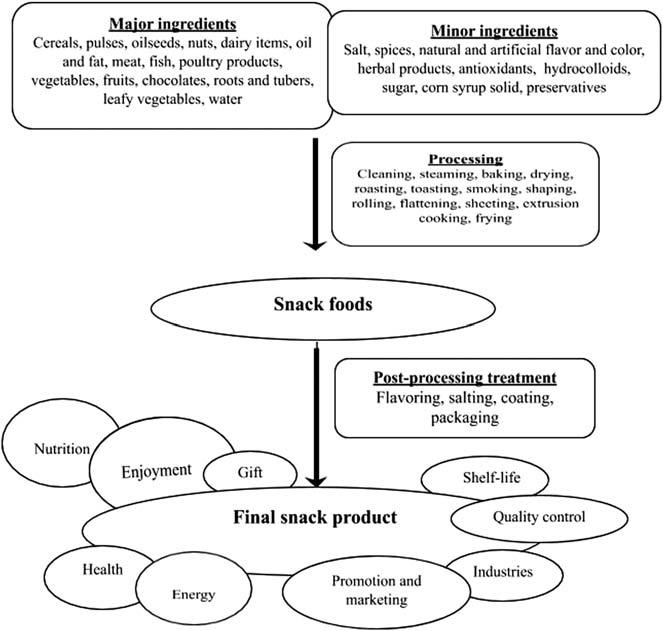
includingvacuumandinertgaspackagingisamandatorystepthatoffers anappealingappearanceofthesampleinadditiontoaidinginextending theshelf-lifeandeaseinhandling/transportation.
Snackfoodshaveseveralaspectsthatarerelatedtosocial,cultural, nutritional,andhealthissues.Snackfoodsarecommoditiesthatprovide valueadditiontorawingredients,enjoymenttopeopleofallagegroups duringconsumption,andanitemoftrade,business,andexport.Lastly, snacksprovidenutritionandarelinkedtohealthissues,thoughpersons consumingdonotconsidersnacksasacommodityofnutrition.Asmany otherfoods,overeatingsnacksmayleadtohealthproblemsduetothe additionofextrafoodenergy(calorie)andoil/fat,particularlyfromfried andbakedproducts,whicharetheundesirablefeaturesofsnackconsumption.Theproblemisexpectedtobesolvedbydevelopinghealthyproductsandrestrictingtheconsumptionofsnackfoodsbyindividuals.
Figure1.1 Thearenaofsnackfoods.
1.1Definition
Theconsumptionoffoodarisesfromthefundamentalreasonoffeeding ourbodieswiththefuelitneedsandtheassociatednutrients.However,it isaprocesswheretheavailabilityoffood,price,safety,taste,flavor,prior knowledge,etc.,arethefactorsofimportance.Inthecaseofconsumption ofsnacks,thesituationiscomplicatedduetoadditionalfactorsofavailabilityofleisureandenjoymentofeatingsnackfoods.Consumersexpect somethingdifferentorinterestinginsnackscomparedtofamiliarbase mealsofferingnoexcitement.Furthermore,foodhabitshavechangedfor manypeopledueto “cash-richless-time” conditionsandshiftingtoward purchasingsnacksfromoutsideratherthanpreparingthemintheir domestickitchens.Theplaceofpurchasevarieswidelyfromasophisticatedmallordepartmentalstoretoastreetfoodcorner.
Snackingisanomnipresenthabitthathasincreasedinrecentyears maybeinthelastthirtyyears(Johnson&Anderson,2010).Nevertheless, theeffectsofsnackingonhealthanddietareintricatetojudgeowingto differentavailableapproachestodefinesnacksandsnacking.Simply,itcan bestatedthatitisadifficulttasktofindawell-definedandwelldemarcatedareaforsnackfoods.Furthermore,thechanginglikingand/or dislikingtrendofconsumerstowardtheeatingpatternofsnackfoods affectstheproductdevelopment,associatedtechnologiesandmachinery involved,short-andlong-termbusinesspolicyofindustries,andtheperceptionofconsumerslinkinghumanhealth.Thusthesubjectofsnack foodsisadynamicsystemexpectingfrequentmodificationsoverlocation andtime.
Itmaybepossiblethatthetimeofconsumingfoodduringtheday/ nightisusedtoderiveadefinitionofsnackingtime,andsubsequently, thesnackproducts( Gregori&Maffeis,2007 ).Foodsconsumedbetween 8and10a.m.,12noonand2p.m.,and6and8p.m.areconsidered meals,andfoodconsumedatothertimesmaybeconsideredsnacks.It maybementionedherethattheeatingpatternsofpeoplevaryaccordingtotheirlifestyleandculturalpracticesindifferentcountries.An exampleisthattheshiftworkers,latemorningrisers,andpeoplebusy withprofessionalactivitiesfrequentlytakebreakfastafter9a.m.,lunch beyond2p.m.,anddinnerlaterthan8p.m. Duffey,Pereira,and Popkin(2013) ,basedonasurveyinBrazil,haveindicatedthatmeals weredefinedasthelargest(kcal)eat ingeventreportedduringselected timesoftheday(breakfast,6 10h;lunch,12 15h;anddinner,
18 21h);allothereatingoccasionswereconsideredsnackingtime. Thusthetimeofsnackconsumptionmaynotbeanaccuratewayto definesnackingtime.
Itisthusbettertodefinesnackfoodsasitemsthatareconsumedin additiontomajormealsparticularlybetweenthemiddaylunchandbefore thelateevening/nightdinner.Furthermore,thesnacksarepredominantly solidfooditemsthatusuallyexhibitacrisptexture.
1.2Frequencyofsnackconsumption
Snackingisacommonpracticeandthetrendisincreasingworldwide. Zizza,Siega-Riz,andPopkin(2001) haveobservedthat84%ofyoungUS adults(19 29yearsofage)whoparticipatedinasurveyoffoodintakeby individualsreportedconsumingatleastonesnackduringatwo-dayperiod. AnAustraliansurveyhasindicatedthevaluetobebetween2.4and4.6 times/week(Savige,MacFarlane,Ball,Worsley,&Crawford,2007).
Matthys,DeHenauw,Devos,andDeBacker(2003) haveobservedthat snacksbetweenmealssupplyabout20%oftotalenergyintakeforadolescentsbetween13and18years.Combinedwiththeintrinsicneedfor energy,snacksfulfillthesensesofvision,touch,smell,texture,andtaste. Snackfoodsareaconvenientmannerofmeetingthedailynutritional requirements.Peoplearenowspendingmoreoftheirtime,presenceand moneyinthearenaoffastfoods,snackcounters,andrestaurants.The increasingdemandforsnackfoodhasintroducedseveralmarketingniches.
Theprocessofsnackingalsoaffectshealth,whichismostlyattributedto theconsumptionofexcesscalories,salt,andoil/fat.Thustheterm “junk food” hasarrived,whichultimatelyshiftstheattentiontowardthedamagingroleinhumanhealth.However,theconceptofhealthysnackscan improvethesituationwhereintherequirementisfordevelopingnewer technologiesbasedoninnovativethoughts.Thereexistsasubstantialinconsistencybetweenhealthysnackchoiceintentionsandtheactualbehavior (consumingsnacks)whensnacksareavailableorarriveatthem.Snacksmay changethedietaryconsumptionastheyareusuallyenergy-densefoods.
Keast,Nicklas,andO’Neil(2010) haveindicatedthatsnackingmaybe animportantstrategyformeetingtheenergyneedsforincreasedphysical activity.Snackscanalsomeettherecommendedintakesofshortfallnutrients thatareotherwisecannotbemetwiththeconsumptionofonlythreemeals perday,particularlyforpeoplewithnutritionaldeficiency.Snackingislikely toplayanimportantroleinthecontrolofoverweightandobesity.However,
thecontextofsnackinginadolescentsisnotclearlyunderstood.Furthermore, snackingmayinfluenceotherdietaryhabits,suchasmealskipping;thisphenomenonisyettobefollowedinadditiontofindingapragmaticmethodologytochangetheconsumptionof “unhealthy” to “healthy” snackfoods.
Inthelasttwodecades,apartfromconventionalrestaurantsandstreet foodsellingshops,anewgroupofshopstermedsnackcorners,snackcounters,snackbars,chipcenters,fastfoodshops,andmini-shopshasstarted functioninginmarketplaces,busstands,airports,railwaystations,plazas, commercialcenters,marts,mini-marts,vendingmachines,malls, departmentalstores,andsupermarkets.Theymainlysupplyready-to-eat (RTE)attractivesnacksorpreparethemquicklyforthecustomerswho comethereforsomeotherwork,suchasbuyinghouseholdthingsandthe alike,orwaitingforthetrain/bus/planetoarrivepossiblytokeepthemselvesbusyandavoidingamonotonoussituation.Watchingasportscompetitionisalsoaccompaniedby “munching” ofsnacks,thoughtheconsumer maynotbehungryatthattime.However,theadvantagesofsuchestablishmentsincludethelowcostofinvestment,professionalmanagement,and maintenanceofgoodhygienicconditionsinmostcases.Inanextendedlist, places,suchasshopssellingsnacks,arealsoavailableduringfestivals,sports, andculturalmeets.Thefastfoodshopssellingsnacksarealsoconsideredthe recreationalfoodstobeconsumedattheout-of-the-homeplaces.Theterminology “munching” hasbeenpopularnow,whichmeanstoeatsomethinglikeacrispysnackproductsteadilyandoftenaudibly.
1.3Classificationofsnackfoods
Thebasisofclassificationofsnackfoodsmaybetheingredientsused,type ofprocessing/technologytheproductundergoes,typeoffoodbasedon consumption[likeRTE/readytoprepare(RTP)],oreventheplaceof origin(ortheregionofpopularity).Furthermore,manytraditionalfoods areavailableindifferentpartsoftheworld.Theclassificationofsnack foodsbasedonmajoringredientsused,processingtechnologyemployed, finishedproducttypesuchasRTE,orRTPoruse,traditionalsnack foods,andtheplaceoforigin/popularityisshownin Table1.1
1.4Consumptionofsnackfoods
Itisadifficulttasktostayaheadofsalestrendsinfast-movingconsumer goods(FMCG).However,consideringthemacroeconomictrends,itis
Table1.1 Classificationofsnackfoods.
BasisofclassificationExamplesofproductComments/characteristicsofproduct
Baseingredient(s)usedPoppedandpuffedcereals,friedcereal/pulsedough/batterbasedsnacks,saltednuts,baked/friedjalapeñostuffed snacks,potatochips,biscuits, cookies,roasted/friedfish/ meat/eggproducts
Processingtechnology employed
Finishedproduct types,suchasRTE orreadytoprepare
Spicednuts,ready-to-eat(RTE)extrudedlow-density snacks,batter-coatedbaked/friedvegetables,meat,and fish,extrusionformedready-to-preparesnacksfor frying/bakingattheconsumers’ end
Expandedsnacksofuniqueshapeslikearod,ring,and wheel,and3DsnacksasRTEorready-to-prepare products,extrusion-cookedsnacks,suchascornballsand cheeseballs,asRTEsnacks,saltedpopcorn,fried-salted nuts,fried/bakedpotatochips,coated/stuffedvegetables, meat/fishandeggsnacks,vegetable/chickenpatties, multilayeredsnacks,burgers,potatofingers,cornchips, etc.
Ingredientsincludecereals,pulses,oilseeds,nuts,roots andtubers,vegetables,fruits,chocolates,dairy,meat, fishandpoultry-basedproducts,andmixtureof ingredients
Technologiesemployedarebaking,frying,coating, flavoring,roasting/toasting,extrusionandextrusion cooking,puffing,useofinfra-red/microwaves/ radiowaves,steaming
Productsformtheconveniencefoodgroupandare usuallypricedinthelow-to-moderaterange.Readyto-prepareproductsaregenerallycheaperthanRTE snacksinadditiontohavingahighershelf-life
Traditionalsnack foodsorplaceof originorpopularity
SeveraltraditionalfoodsofEuropehavealreadyformed theworldwidepopularindustrialsnackproducts,such aspotatochipsandfilledbun,tortillafromcentral/ southAmerica,potatochips/crispsfromEngland,and pretzelsfromFrancebecamepopularthroughoutthe world. Paratha andpuffedriceintheIndian subcontinentarepopularinsouth-eastAsiancountries
Thoughstartedathomeorcottage-scalelevels,several traditionalsnackshaveacquiredworldwideacceptance andcommercialimportance
Theseproductsmayalsobeclassifiedbasedontheplace oforiginortheregionofpopularity
possibletoidentifythecategoriesthatmayshowasurgeinsales. Furthermore,anticipatingconsumerneeds,theoverallpicturemaybeclear. OneFMCGcategorythatshowspromiseissnackfoods.Examplesofsnack foods,knowninternationallyorpopularinmorethanonecontinent,are potatoandtortillachips,cerealsnacks,pretzels,popcorn,cheesesnacks, snackcrackers,nuts,meatsnacks,porkrinds,snacknuts,partymix,corn snacks,pelletsnacks,fruitsnacks,snackbars,granola,snackcakes,cookies, andvariousothersnacks.Thesavorysnackscomprisepretzels,tortillachips, cheesecurls/puffs,spiced/flavoredsnacks,andmeatsnacks.Otherfoods, suchascandiesandchocolatesandsweetcereal/pulse-basedsnacks,are popularsweetsnacks.Thechallengeforsnackdevelopersistofindanew productthatwillbesuccessfulinafieldwherenearlythree-quartersofall launchesfail.Atpresentalmosteverythingthattouchesourlivesisgoing global,anditisnowonderthatconsumers’ tastebudsalsowanttoexpand theirglobaltravelswithsnackfoods.Yet,withalloftheeffortsonanew concept,innovation,productdevelopment,globalization,andmarketing, theidentificationofasuccessful,good-for-yousnackwiththepotentialto becomepopular(i.e.,purchasedandrepeatedlypurchased)inacompetitive andcrowdedmarketcontinuestoremainelusive.
Intheinternationalmarket,severalsnackfoodsaresold.Apartfromthese internationalbrands,many traditionalfoodsaresoldinlocalmarkets,which arerarelyproducedbylargeindustryhouses.Theproductsoftheunorganizedsectorthatconstitutesmedium-, small-,andcottage-scaleindustries usevariousingredientsandaboriginalmanufacturingtechnologies.
Snackfoodproductsofcommercialimportancearemanufactured throughouttheworldbyalimitednumberofmanufacturers.Thecontinuousresearchanddevelopmentactivitiesbythesemanufacturershave improvedourunderstandingoftheirstructures,preparationmethods, developmentofhealthysnacks,andqualityimprovementsinextending theirconsumeracceptanceandshelf-life.
1.5Surveysonsnackconsumption
Theconsumptionofsnackfoodshasbeenthesubjectofseveralstudies andsurveysindifferentcountries.Thebasicconceptbehindthesesurveys istogatherreliableinformationonthetype,frequency,andquantityof snackfoodspreferred/consumedbythepeopleofselectedorallage groupsduringthelastfivedecades(Table1.2).Afewofthesestudies havelinkedsnackconsumptionwiththeproblemsofoverweight,obesity,

